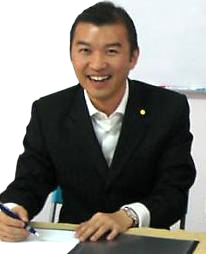Ask the Expert – The Losing Game
by on 03/06/2015 ...


Question : My daughter hates losing. She can’t stand to lose even at simple games. She gets very upset and even angry when she lost. How should I deal with this?
Answer : Winning and losing in life’s events can be difficult for many children. However, we as adults can help them by sharing these tips.
If your child’s frustration results in a tearful meltdown over the outcome of a game, calmly put the game away and remove her from the situation. Once the emotions have quieted down, then you can go back and talk about what happened and why they felt so upset? This step is to separate the game (or winning or losing) from the child so that you can share with the child. It is important to identify what are the child reactions before we share with her/him. If another child is involved, bring him or her into the conversation to reinforce the importance of good social behavior, such as taking turns and following a game’s rules. And even though it can be difficult to watch children become emotional during an activity that should be fun, they are learning from the experience.
Preschool children are building social skills and learning how to get along when they play. Frustration can teach children about failure and that it’s part of life. Parents can help with this lesson by explaining that it is fine to feel frustrated when things don’t go your way, but there are appropriate ways to express these feelings. Do remember that young children look to parents for cues when it comes to good sportsmanship.
“Actions speak louder than words, and if parents and adults around them exhibit appropriate behavior in sportsmanship, that’s what they will learn. If they see their parents in the stands yelling over a mistake, then that’s not a good role model.” While your children may not fully understand competition, she/he can comprehend your attitude towards it, so set the right tone now for the years to come.
If your child has a hard time losing, then parents need to help him focus less on winning. Parents can do this by changing how they discuss the outcome of a game. When your child walks in the door after a competitive experience, don’t ask, “Did you win?” Ask, “Did you have fun?” or “Did you make any good plays?” With this shift in focus, you teach your child that it’s not only about the end product, but the whole process.
Regardless of outcome, it should be about, ‘How am I doing?’ and ‘How are my skills developing. Kids need to see themselves making progress. That’s why we always recommend that parents to motivate their children with a “task mastery” approach rather than the “go-for-the-trophy” mentality. “Not just the trophy, but the race”. Parents can comment on how a specific skill keeps improving, regardless of a game’s outcome.
Parents can also remind their children to be competitive with themselves instead of always focusing on the end result. They can learn to ask themselves, ‘Did I give it my best shot?’ and ‘What can I work on?’
Lastly, parents should always pay attention to the atmosphere surrounding the competitions where their children spend so much time. Regardless of age, honest conversations will play a major role in transforming a sore loser or stressed-out child into a good sport who can enjoy a game no matter what the final score.
If you have any question, please email your question to editor@kiddy123.com (with email subject “Ask The Expert”).
Thank you in advance for your participation.
……………………………………………………………………………………………………………….
About Our Expert

Professor Dr. Eric Lim is the founder of Kits4Kids Foundation, a foundation that specializes in the education and development of children with special needs.
He also leads many international social enterprises all around the world. Prof. Dr. Eric Lim holds a PhD in Educational Management as well as Masters of Education, Bachelor of Special Education and Masters of Psychology, focusing on child psychology and counseling.
He is passionate about helping as many people as he could in spreading the love for children and humanity.
Prof. Dr. Eric Lim is here to answer your questions on:
- Childhood care (Aged infants and above)
- Children education
- Play tools for skills development
- Family counseling
- Other relevant areas

































